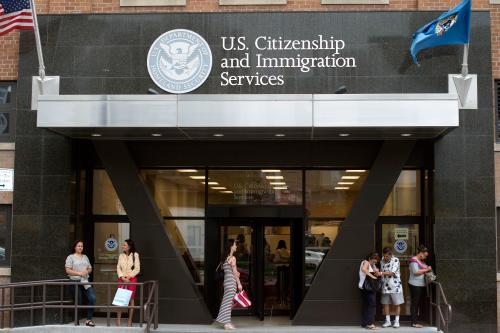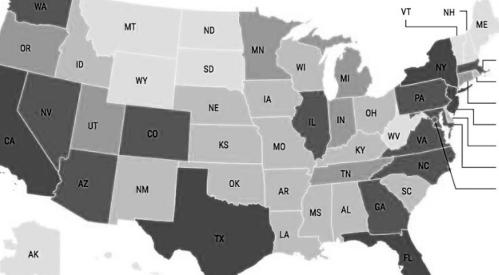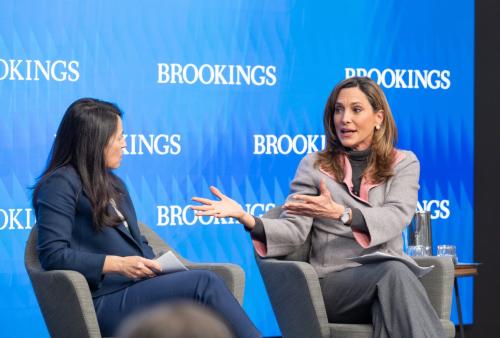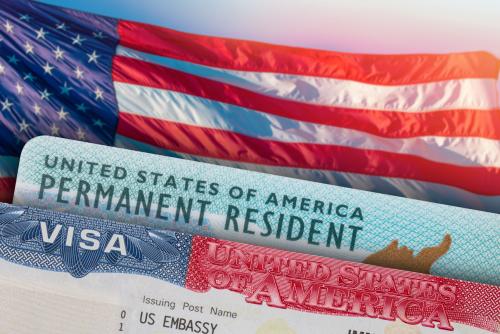Throughout his campaign and into his presidency, President Trump has promised to implement new immigration policies that will help improve the U.S. economy and job market.
A motivating factor behind Trump’s proposed policies—including the construction of a new U.S.-Mexico border wall, more border patrol agents, and stricter deportation policies—is his belief that immigrants are stealing job opportunities from American workers. As he said in July 2015, “They’re taking our jobs. They’re taking our manufacturing jobs. They’re taking our money. They’re killing us.”
But is that really the case? In new research, Brookings experts explore how immigration affects the economy, and what Trump’s proposed policies could mean for the future the U.S. workforce.
Trump’s proposed policies aim to decrease immigration
In one of his first proactive attempts to decrease the number of immigrants illegally entering the U.S. and the nation’s workforce, Trump has vowed to increase the number of U.S. Border Patrol Agents to an unprecedented 26,370.

Trump has also proposed building a wall along the U.S. Mexico border in order to prevent immigration into the U.S. This border wall has been a priority for President Trump since his campaign. At a recent campaign rally in Arizona, Trump threatened to shut down the government if Congress does not allocate funding to building a border wall.
Immigrants often fill the jobs Americans don’t want
However, some argue that the work of these agents to protect against “job-stealing” immigrants may be in vain. As Brookings Senior Fellow Vanda Felbab-Brown explains in her new Brookings Essay, “The Wall,” immigrants may not actually be “stealing” as many U.S. jobs as Trump thinks. As she put it, “the impact of immigrant labor on the wages of native-born workers is low… However, undocumented workers often work the unpleasant, back-breaking jobs that native-born workers are not willing to do.”
Felbab-Brown explains that many of the jobs occupied by undocumented workers in the United States are physically demanding jobs that Americans do not want, such as gutting fish or work on farm fields. She argues, “fixing immigration is not about mass deportations of people but about creating a legal visa system for jobs Americans do not want. And it is about providing better education opportunities, skills-development and retooling, and safety nets for American workers. And to date, Trump hasn’t offered serious policy proposals on many—if any—of these areas.”
Prioritizing only highly-skilled immigrants isn’t necessary
But what about legal immigrants and high-skilled workers? Brookings Senior Fellow William Frey takes issue with a proposal from President Trump to cut quotas for legal immigration in half and to prioritize the entrance of those with high skills. He argues that “these [proposals] fly in the face of census statistics that show that current immigration levels are increasingly vital to the growth of much of America, and that recent arrivals are more highly skilled than ever before.”
As for prioritizing immigrants with high skill levels, Frey points out that recent immigrants are already more highly educated than those of the past. In fact, he explains that “college graduates are more prevalent among recent immigrant adults than among all adults in 90 of the 100 largest metropolitan areas.”
 Immigration is tied to positive economic growth and innovation
Immigration is tied to positive economic growth and innovation
Frey also explains that immigration is especially important for areas that are experiencing a decline in domestic migration and that U.S. immigration levels are currently fueling most community demographic gains. These gains are especially important as the nation’s population gets older and fertility remains low.
Brookings Senior Fellow Dany Bahar also examined the positive link between immigration and economic growth. Bahar explains that while immigrants represent about 15 percent of the general U.S. workforce, they account for around a quarter of entrepreneurs and a quarter of investors in the U.S. and that over one third of new firms have at least one immigrants entrepreneur in its initial leadership team.
Moreover, Bahar explains that the impact of immigration on the wages of native-born workers is very small. “If anything,” he concludes, “negative impacts occur for the most part on wages of prior immigrants with similar set of skills.”
As Bahar mentions, “by cutting on immigration, the country will miss an opportunity for new inventions and ventures that could generate the jobs that the president is so committed to bring back. Thus, if the current administration wants to create jobs and ‘make America great again,’ it should consider enlisting more migrants.”
The Brookings Institution is committed to quality, independence, and impact.
We are supported by a diverse array of funders. In line with our values and policies, each Brookings publication represents the sole views of its author(s).







Commentary
Do immigrants “steal” jobs from American workers?
August 24, 2017